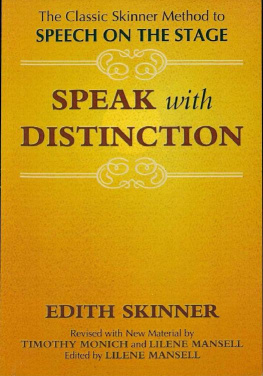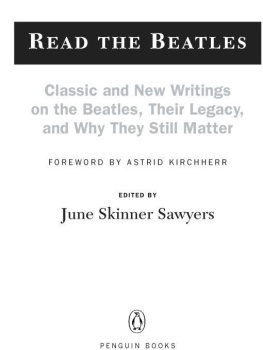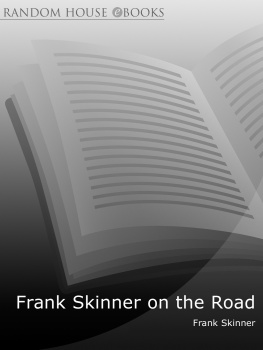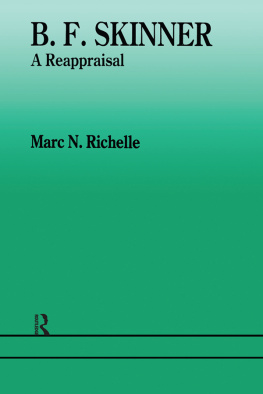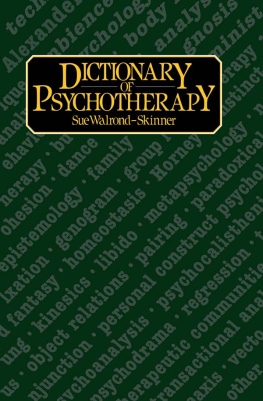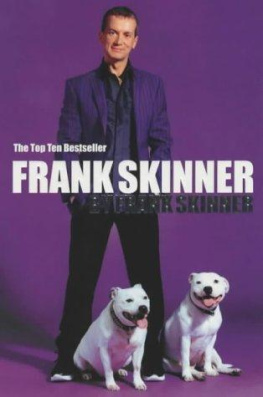
An Applause Original
SPEAK WITH DISTINCTION
by Edith Skinner
Revised with New Materials Added by Timothy Monich and Lilene Mansell
Edited by Lilene Mansell
Copyright 1990 by Lilene Mansell All rights reserved.
Book Team:
In-House Editor: Alexis Greene
Production and Design Editor: Sue Knopf
All rights to Speak with Distinction are protected by copyright. No part of this publication may be reproduced or transmitted in any form or by any means, electronic or mechanical, including photocopy, recording, or any information storage or retrieval system now known or to be invented, without permission in writing from the publishers, except by a reviewer who wishes to quote brief passages in connection with a review for inclusion in a magazine, newspaper or broadcast.
CAUTION:
Special emphasis is placed on copyright protection against photocopying Speak with Distinction. A breach of the copyright law has occurred when even one page has been photocopied regardless of cause or circumstance.
Library of Congress Cataloging-in-Publication Data:
Skinner, Edith.
Speak with distinction / by EdithSkinner; revised with new material added by Timothy Monich and Lilene Mansell ; edited by Lilene Mansell.
p. cm.(Applause acting series)
Includes bibliographical references (p. ) and index.
9781476842257
1. Acting 2. Voice culture. 3. Speech. 4. English languagepronouciation. I. Monich, Timothy. II. Mansell, Lilene. III. Title. IV. Series.
PN2071.S65S55
199C 792.028-dc20
90-1039
CIP
Tarantella by Hilaire Belloc reprinted by permission of the Peters Fraser and Dunlop Group Ltd.
For information:
APPLAUSE THEATRE & CINEMA BOOKS
USA
19 West 21st Street, Suite 201
New York, NY 10010
www.applausepub.com
Sales and Distribution
North America:
Hal Leonard Corp.
7777 West Bluemound Road
P.O. Box 13819
Milwaukee, WI 53213
Phone: (414) 774-3630
Fax: (414) 774-3259
Email: halinfo@halleonard.com
Internet: www.halleonard.com
www.applausepub.com
FOREWORD
Through voice and speech, more than any other qualities, the actor lays bare before an audience the soul of the character impersonated. Since the words express the meaning of what the actor says, and the tone of voice reveals feelings about what is said, the actors vehicle for carrying wordsthe voicemust be flexible. It must communicate the nuances of the most hidden emotions being portrayed in the most effective and convincing way that is possible.
The speech of a character must bring to life the character itself.
If the role calls for refined utterance, the audience must receive that impression, or else the actors tool has not been trained sufficiently and gets in the way of the performers art. If the character speaks a dialect, then the actor must create the illusion by changes in sounds and melody. However, the actor must not create so much dialect that it interferes with understanding the lines being spoken.
Distinct utterance is the prime requisite of an actor. In fact, the audience should be able to take for granted that they can hear and understand everything the actor says, without straining to do so.
Obviously, training in voice and speech is imperative and fundamental. In search of the best, we look to the stage; for the theater has a responsibility too often neglected: to foster the finest sound of Spoken English. Edith Skinner
Edith Skinner
From the Preface to the First Edition
REMEMBERING EDITH SKINNER
It was in the late 1960s, as a fledgling production assistant in Ellis Rabbs famed APA Repertory Company, that I first came under the spell of Edith Skinner. Ellis, the organizations founder and artistic director, brought Edith to us periodically as we worked on texts of Shaw and Shakespeare, Giraudoux and Pirandello, Ionesco and Messieurs Kaufman and Hart. She would appear among us like a sly matron at a garden party, impeccably dressed, her spiral notebook and pencil juxtaposed precariously with an elegant purse, and pursue us allfrom those playing the leads to the stage management-with fervor, purpose and the ever-present Ask-List. Of course, her ear was extraordinary, and soon everyone began to hear themselves through her tenacious objectivity. The clarity of a remarkable vowel might be praised in the midst of her request for coffee, and yet, the thrill of pleasing Edith remains with me today, as one of the ineffable treasures of initiation by a truly great teacher.
What is known now as Good Speech, certainly for the stage, is to me unquestionably the sole province of this remarkable woman. The generations of students she guided at Carnegie Mellon University, The Juilliard School, American Conservatory Theatre (ACT), and elsewhere are legion and legendary. Her influence extends from coast to coast and even abroad, and the standard of excellence she both identified and represented remains as fixed today as anything in our theatrical cosmos.
This welcome edition of Edith Skinners Speak with Distinction is more than simply the preferred text of theater directors and actors the country over; it represents an essential link of our craft with something at once indigenously North American and essential to our respect for skill and technique. Only with the fullest expression of skill and technique is an actor truly free, truly able to communicate the actual depth and range of his or her talent. In a world in which respect for craft tends to shrink daily, this volume represents a light sustained and held aloft, an emblem of pride as sure and unmistakable as the eloquent speech it protects.
Jack OBrien
Artistic Director, The Old Globe Theatre
San Diego, California
INTRODUCTION
The original version of Edith Skinners Speak with Distinction , first published in 1942 and last revised by her in 1966, was initially meant to be used by Mrs. Skinner and her students at the Carnegie Institute of Technology (now called Carnegie Mellon University). As her students entered the professional theater and some of them found careers themselves as Edith-trained teachers in drama schools, or as coaches for professional productions, the book became widely recognized as the most complete and rigorous text of its kind and was pressed into wider and wider service.
Mrs. Skinner was beginning plans for a new edition of Speak with Distinction in 1981, the year of her death. She wanted the new edition to retain its comprehensive format in a more simply organized and readable way, to make it accessible to teachers and students of any training and background. The current popularity of classics and plays with intricate language on all English-speaking stages, which beg for accurate portrayals of many varieties of English, demands thorough and intensive speech training of todays artists and those of the future. To that end, Speak with Distinction is now available to a wide readership.
While continuing to present a comprehensive study of the sounds of Spoken English in their most important phonetic environments, we have also added much material for comparisons of speech sounds; suggestions for accurate, efficient and conversational ways of combining the sounds into connected utterance; indications that foster a working knowledge of two dialects of speech (General American and what Mrs. Skinner called Good Speech for classic and elevated texts); and beginning material to show application of the principles of Good Speech to well-written texts.

